"With the Little Knowledge I Had from the High School Exam, I Argued with a Professional Missionary"
From a Travel to Africa to a Spiritual Journey: The Inspiring Story of Chaim Eran Gutsman
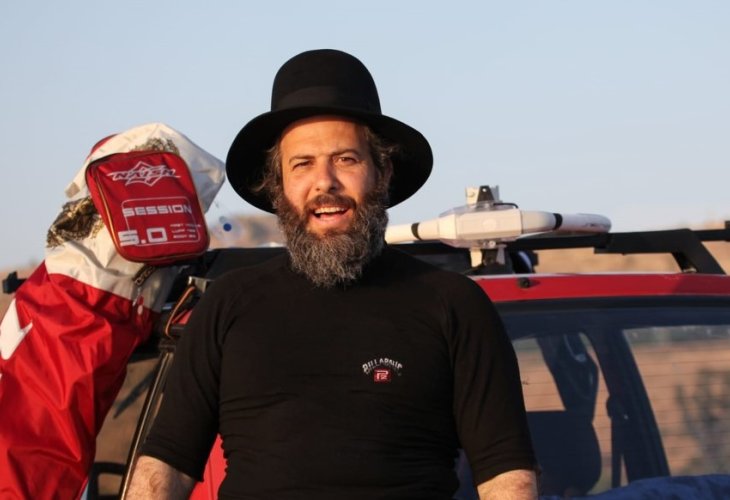 Chaim Eran Gotsman
Chaim Eran GotsmanNothing in Chaim Eran Gutsman's childhood could have predicted the journey he would embark on. Who could have guessed that he, a child from a Bulgarian-Yugoslavian family and the son of Air Force officers, would take the unbelievable step and return to faith?
"I grew up in a home very distant from tradition," he says, "although we fasted on Yom Kippur, we didn't do much beyond that. On Shabbat, we would do kiddush, but then have a barbecue, and during the kiddush my parents would usually say 'Lower the TV volume so we can hear.'"
"The first time I heard about Judaism was during my military service. I was an instructor at a flight school, and in the course I taught were some boys with knitted kippot. It was actually the first time in my life that I saw religious people up close. It was a very intensive course; participants barely slept at night, and I remember those boys would wake up half an hour before everyone else to put on tefillin and pray. I was very impressed."
In those days, he was also given the book 'Guide for the Perplexed' by Maimonides. "I didn't even have a minimal understanding of Judaism," Gutsman notes, "yet I sat in a tent trying to learn from this book. It intrigued me greatly; I felt there was something vast and immense in it, but I couldn't grasp it because of my limited understanding."
According to Gutsman, he already showed significant interest in Judaism at that time but was careful not to get too close, so as not to return to faith unwittingly.
Conversations with a Missionary
Gutsman continues his story: "After I finished the army, I went to complete my high school exams, and during my studies, I met the woman who would later become my wife. Toward the end of the studies, she suggested I join her for a world tour, and truth be told, I wasn't too keen. I had other plans, but she convinced me by saying we’d fly through South Africa and surf on its beaches. Since I am a professional surfer and surfing is one of my hobbies, I decided to join."
Their flight to Africa took place precisely during a bloody civil war there. "Looking back, I know it was irresponsible of us to fly there at that time, but we were young and exuberant, maybe a bit naive. We didn’t fully grasp the magnitude of the risk.
"To reach Africa, we passed through Muslim countries, then arrived in Rwanda - where we found ourselves amid the war and realized we’d need to escape soon. We tried moving from place to place, and during one escape, we ended up staying in a church with a missionary who came to strengthen non-Christian locals to believe in his faith. When he met us and understood we were Jews, he felt his dream was coming true. After all, it’s much more valuable than dealing with the primitive locals."
Gutsman recounts that throughout the week with the missionary, he tried to convert them to Christianity. "I remember us sitting and having breakfast at his place, with a large world map on the wall showing the creation of the world until the supposed revelation of his faith, and the future, where according to Christian belief, he will appear again.
"I might not have been a big believer in Hashem, nor did I have deep knowledge of Judaism beyond what I had learned in Bible class. But I was an audacious Israeli, and the more I listened to the missionary, the more I realized he was spouting nonsense. On the other hand, it wasn’t easy arguing without real knowledge against someone whose whole job this was. Eventually, I came out of that week understanding that all of Christian belief is flawed and based on lies, but I was left with three essential questions that didn’t sit well with me in Judaism and left me deeply pondering."
For an entire month after that, they continued traveling through Africa, trying to reach safety, while during that time they were considered missing by the Ministry of Foreign Affairs, as their families received no sign of life from them. "We traveled vast distances by boats, on crocodile and hippo-infested rivers, until we eventually reached South Africa – considered a safe zone. There, we were met by military personnel who contacted Israel, and finally, we could inform our families that we were alive, healthy, and well.
"I should have been happy once we finally reached a place where we didn’t have to fear for our lives," he adds, "but the only thing that mattered to me then was getting answers to the questions I held within. When I met the Israeli delegation that came to assist us, I was delighted because I saw a religious person among them. I hurried to present my questions, and he tried to answer, but he probably didn’t have much knowledge, and he didn’t satisfy me. I was left confused, knowing Judaism is truth, yet having substantial questions."
What role did your wife play in this situation?
"During those days, she enjoyed the trip. Although at one point she did let slip: 'I think we should return to faith,' but we didn’t develop the topic."
In the meantime, they flew to Zimbabwe and from there to Malawi, where they continued touring for a few more months before finally returning to Israel.
Answers to All the Questions
Immediately after arriving back in Israel, Gutsman visited his parents and his mother, who was running a shop at the Jaffa Flea Market during that period. "On the street where the store is located, right on the corner, there’s a synagogue affiliated with the Bitshkov Hasidic community," he notes. "When I went to visit my mom, the son of the Rebbe - Rabbi Zeida Shmuel Rosenboim, who was then 16 years old and is now the current Rebbe, tried recruiting me to complete a minyan for the Mincha prayer. I boldly responded, 'I’ll join the minyan only if you answer three of my questions.' The young man promised that after the prayer, he would try to answer, and indeed, after we finished praying, I quickly presented the questions that troubled me and wouldn’t give me rest.
"And the young man, just 16, replied: 'Oh, that’s a simple Rashi.' He pulled out the Book of Prophets, showed me Rashi's commentary, and in an instant dismantled all the questions that troubled me for months. Only then did I feel relief and begin to breathe - yes, I am in the right religion, Hashem is the Almighty."
Since that day, a special bond was formed between Gutsman and the Rebbe's son. "We studied together for a long period in a study partnership; I asked many questions, and sometimes there were debates and arguments. Each time, I was amazed by the precise answers the young man provided, sometimes after consulting with his father. The incredible simplicity and immense knowledge always amazed me anew. I, coming from a background of self-reliance, discovered suddenly how strong Judaism is and how it encompasses vast knowledge. Yet, whenever the young man tried talking to me about practical things, I objected, especially when he talked about keeping Shabbat. I made it clear that this wasn’t the direction, and please – no further."
Shortly after that, Gutsman celebrated his birthday, and when his parents asked what he wanted as a birthday present, he surprised them by answering: "Tallit and tefillin." "The parents were quite astonished," he recalls, "they didn’t imagine I was serious, but after dad tried to find out what it was about, and I explained I wanted to put on tefillin, he asked: 'How much does it cost?' I replied that I was short by 600 shekels, and he answered: 'I’ll make up the difference.' Since that day, I began putting on tefillin, and my feeling was that I'd achieved a balanced relationship with Hashem – I strive to be decent, put on tefillin, sometimes even pray a bit, but also live my life comfortably."
But then came the blow. "Three months later, my father died of a sudden heart attack. He was only 52 years old then. Suddenly, I found myself saying Kaddish and connecting with the words, and regularly visiting the synagogue. I became more and more connected to the prayers, and this led to further progress. When I later married my wife, it was already clear to both of us that the wedding would be with a divider, and of course with kiddushin according to the law of Moses and Israel."
Gutsman emphasizes that their progress as a couple wasn’t instant, but gradual. "We always looked forward, together we started keeping Shabbat, separating milk and meat, and continuously advancing. Throughout the journey, the Rebbe of Bitshkov accompanied us, and today I belong to the Bitshkov Hasidic community – a community with a warm heart that welcomes many baalei teshuva, and is known for its unique activities."
Into the World of Photography
During the years after their wedding, the Gutsman couple lived in Jaffa, and Chaim Eran managed a large vintage store. "Apparently I had unique items, and there was great success. Among others, many famous actors and singers from Tel Aviv came to my shop, and along the way, I used to photograph the items I sold—photography was like a hobby for me. At some point, I began to feel I couldn’t stand being confined to a store anymore, I wanted to break out and look for a different occupation."
One day, the opportunity knocked: "Someone from the customers saw my photography works, and he suggested I print one on a large canvas and offer it for sale in the store. I didn’t believe in it, but I tried, and to my astonishment, the piece sold within an hour for a lot of money. Since then, I decided to jump in and become a photographer."
In recent years, this has been Gutsman's primary occupation, as he photographs all over the country and exhibits the photos in different galleries, including international exhibitions. These days, an exhibition of his is displayed at the Refuge Gallery on the theme 'High Voltage,' where through a series of electric poles, he describes an urban element that has become an integral part of our landscape whose significance is not always recognized. Another exhibition will soon be opened at the Supreme Court on the theme 'Partner'; the exhibition will be unique as it combines photographs by photographers from all sectors.
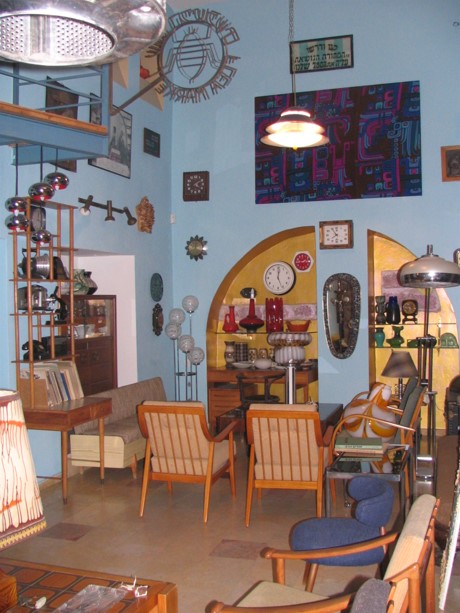
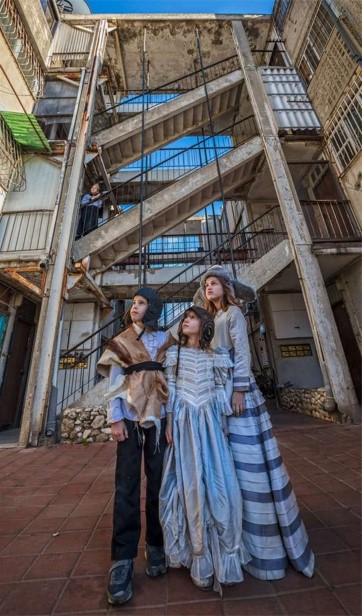
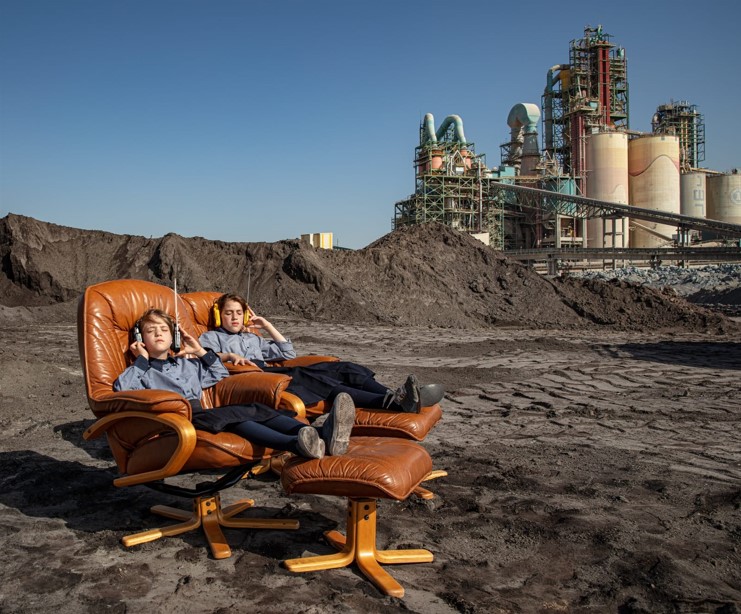
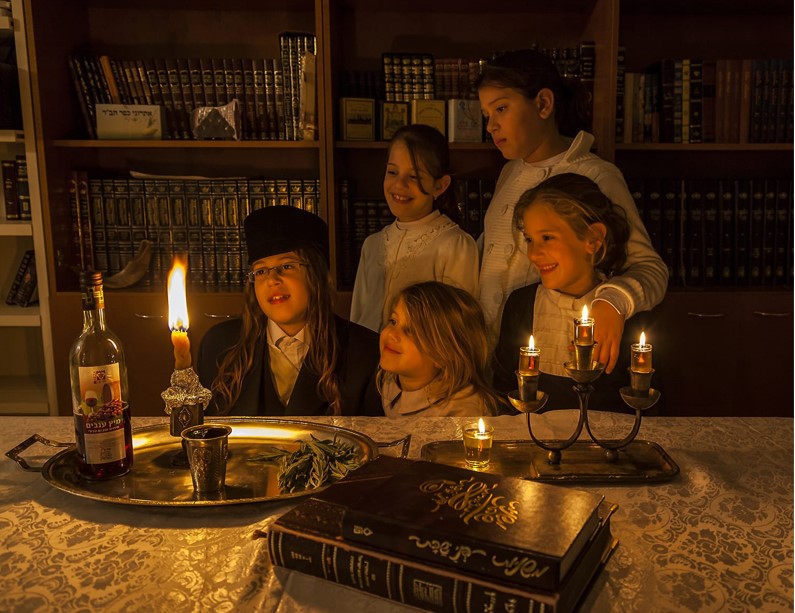
Gutsman and his wife currently live in Elad city, with their seven children. But if they thought they had reached a resting point, COVID-19 came and turned everything upside down. "Last year, when I was 52, exactly at the age my father passed away, I tested positive for COVID-19," Chaim Eran recounts. "Within a week, my condition deteriorated, and I was hospitalized in critical condition, sedated, and on a ventilator. Of course, I don’t remember those days, but my family later told me I developed almost all possible complications – my systems collapsed, kidneys failed, I required dialysis treatments, and I even went into cardiac arrest several times. I was hanging between life and death, and there were several times my family was summoned to bid me farewell. However, apparently Hashem thought I still had a purpose in this world," he says. "After about a month, I opened my eyes and discovered to my horror in what terrible state I was – completely paralyzed, unable to move any part of my body, connected to tubes everywhere possible, and even unable to breathe on my own, vented through a tracheal opening. This was the first time in my adult life I broke into tears.
"In those days," Gutsman shares, "I went through a very tough spiritual process, and had many conversations with Hashem. I didn't want to accept a state where I couldn’t function and my body wouldn’t move, it was a horrid nightmare. I pleaded with Hashem to bring me back to my previous condition and choose a different trial for me. Even afterwards, when the situation improved slightly, I was still devoid of energy and life. I couldn’t control my body, even couldn’t sit, and was tied to a chair with ropes to avoid falling.
"I spoke to Hashem a lot; those were conversations filled with arguments, anger, and cries. It took time until I managed to strengthen myself and understand that everything done here was solely with a measure of mercy. Hashem is a merciful and gracious God. Of course, I wouldn’t have willingly invited the suffering I went through, but after having already gone through it, I'm not willing to trade it for any fortune in the world."
Dancing and Believing
Like many COVID-19 survivors, Gutsman had to undergo a rehabilitation period, which he did at Beit Lewinstein. "You need almost superhuman strength to manage to rehabilitate and return to life," he describes, "endless physical therapy, pains, learning to do everything anew, and all this while knowing the difficulty isn't just personal but that the whole family is under strain."
What still gave you strength?
"Only Hashem gave me the strength, He made me believe in myself and know that I am capable of returning to life. My amazing wife didn’t give up on me for a moment, and I owe her everything. And of course, all of Israel who prayed for me. Only after I recovered did I hear how people stirred the heavens; there were synagogues, yeshivas, kollelim, Talmud Torahs, and seminaries – in Israel and overseas that really turned the world for me. I think Hashem couldn’t have disappointed so many people... and more than anything I gained strength from the joys Hashem sent into my family. Just on the day I was released from Beit Lewinstein, I was privileged to engage my eldest daughter, and a few months later another daughter got engaged and just last week, thank God, she got married."
Gutsman mentions finding it somewhat difficult to dance at the weddings. "My left leg – from the knee up is still paralyzed, I suffer from limping and haven’t fully returned to myself yet, but I believe with Hashem's help it will still happen. Hashem never leaves us, He performs great miracles, and my story is proof of that."

